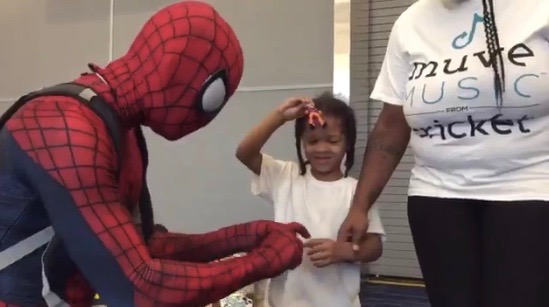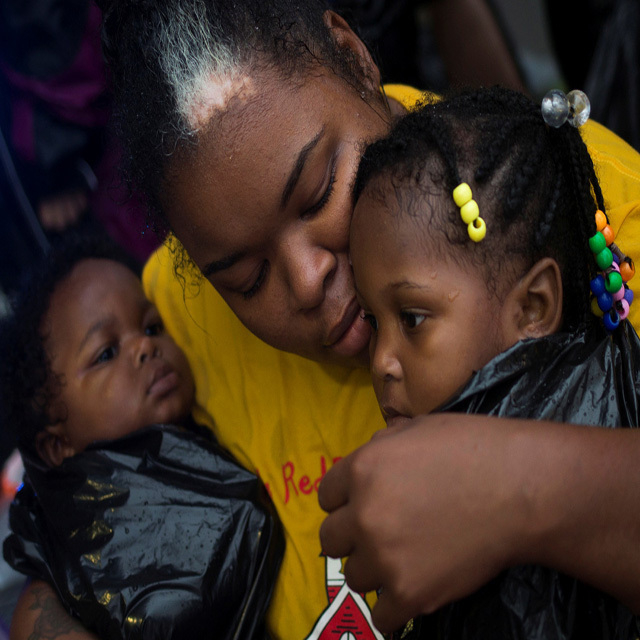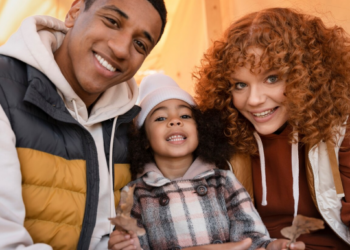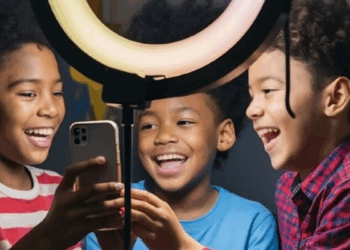
How to help?
Children mimic parental response Any child will mimic the reactions of their parents/caretakers in almost any and all situations. In other words, how your child copes with a situation is directly tied to how you as a parent cope with the situation. Parents should try their utmost to manage their own feelings first in order to provide unspoken reassurance to their child. Parents who show their child that they are in control of getting the family to safety, prepared with a plan of action, and comforting are more likely to help reduce the stress of the child, building a sense of confidence within the situation.
Acknowledge your child’s fear as well as your own In a traumatic disaster, everyone is afraid, on edge, and filled with insecurity. Encourage your child to share their thoughts and listen to their concerns. Let them know that it is okay to be afraid. Fear is a natural, innate human response to traumatic situations. Reassure them that you are there to help protect them and keep them as safe as possible.
Have a plan and then drill Remember those fire drills in school? Well, have a plan and then a drill in your home in response to a possible traumatic disaster in your part of the country. Whether it is a hurricane drill, fire drill, earthquake drill, severe snow storm, drill, so on and so forth, children will fill safer if they know that there is a safety plan in place when disaster strikes. Let your child be the safety captain. Put them in charge of making sure that the plan, when needed, is executed exactly how you all practice. In addition, let them help you make sure that you all are completely stocked up on all needed supplies to make it through the disaster to the moment when the sun starts to shine again. You can never truly plan for a natural disaster; however, having a baseline for safety is a must.
Limit exposure to television news and social media The news media has a responsibility to report the news. Traumatic disasters are not new. However, children should not be exposed to it constantly. At times during broadcasts, there are repeated moments of misinformation, visuals of extreme damage, deaths, etc. Parents should limit the exposure to these images and monitor what their child is watching. This will cut down on the child’s anxiety exponentially. Additionally, if your child does watch news reports, make sure you are there to answer questions.
Get out and volunteer After a traumatic disaster situation, there is always an opportunity to help whether it be financially, by assisting at shelters, or by simply making donations. If you and your child are a victim of the event, having people volunteer and/or donate, gives your child a sense of security, letting them know that they are not alone and people do actually care. If you are outside of the event, helping a community recover will teach your child not only the spirit of altruism, but it will give them a unique since of accomplishment as they exercise the most fundamental act of kindness, demonstrating that they truly are their brother’s keeper.
Disasters will continue to happen in the world-wide. Parents need to make certain that their child is aware and understands this fact, while at the same time letting them know that as a family, when an emergency occurs, you will be there to support them and protect them, no matter what.







